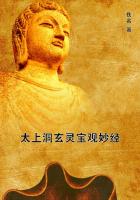For though some have held that the Christianity of Boethius was foisted upon him, with his canonisation as St.Severinus, after his death by those who thought he must have been too good a man to have been a heathen, and though the authenticity of his theological works also has therefore been doubted, yet we may now be almost certain that he was a Christian, and an orthodox Christian, for if it is true that he wrote those works, he combated Arianism during his life, and during his imprisonment he was engaged upon a treatise on the Unity of the Trinity, as well as upon this work.Here perhaps lies an explanation of what must seem strange to us at first sight, namely, that a Christian should apparently look to Philosophy rather than to his religion for comfort in persecution and support at the approach of death.But it is to be feared that in his day, and in the society in which he moved, Christianity meant to many who professed it little more than a subject for rivalry and argument among sects and for the combating of heresies.With many of the contemporaries of Boethius, therefore, a new book of comfort sought for in Christian doctrine would not have had much influence, and there seems to be no reason why people of our own day, even those who draw the greatest help from their religion, should not enjoy the additional comfort which solaced an honest and pious thinker in a time of apparently intolerable and incredible misfortune.
The wide learning of Boethius may be partly shewn by a list of some of his writings, which included original works and translations in many branches of study.For instance, he translated into Latin a great number of Aristotle's works on different subjects, such as those on Rhetoric, Logic, the Categories, etc.He translated three books of Euclid, and wrote other mathematical works.He translated and wrote books upon Music and Mechanics, and one upon Astronomy.His theological Page 173works included treatises against the Nestorians and Arians.
But his Consolation is the work upon which his fame rests.The veneration in which this book was held in the middle ages and onward is abundantly shewn by the numerous translations made of it.It was very early rendered into German, and later on translated into the French of the day by Jehan de Meun and others in later times; into Greek by Maximus Planudes, into Italian and Spanish.In England translations have appeared at intervals during the last thousand years.For just that space of time has passed since that noble educator of his people, Alfred the Creat, translated it with Asser's help, thinking, it would seem, that this work was most worthy of his people's reading of all books after the Bible.But his version does not give us a very true knowledge either of Boethius or his Consolation.
It is of the greatest value to the student of Alfred, because there are many indisputably genuine sayings and opinions of that wise man.There are wise thoughts upon kingly duty and many definitely Christian maxims.
These were outside the theme of Boethius, though wise themselves and deeply interesting as Alfred's own work.Furthermore, the more abstruse parts are wholly omitted, probably as being of little use for King Alfred's subjects.
In later times that most versatile scholar, Queen Elizabeth translated it.Chaucer, Sir Thomas More, and Leslie, Bishop of Ross, the adviser of Mary, Queen of Scots, wrote imitations of it.Robert of Lincoln (Grosset坱e) commented upon it.In the sixteenth century appeared Colville's very fine translation.Translations in verse appeared in the seventeenth century by Harry Coningsby and Lord Preston; others followed in the eighteenth and nineteenth centuries.Its influence is to be found perhaps even in the oldest English poetry of pre-Conquest times; it is certainly very marked in Chaucer, Gower, Spenser, and many another later poet.And in Italy, Dante makes St.Thomas Aquinas point out the spirit of Boethius in Paradise with these words.
'Now if thy mental eye conducted be From light to light as I resound their fame, The eighth well worth attention thou wilt see.
Within it dwells, all excellence beholding, The soul who pointed out the world's dark ways, To all who listen, its deceits unfolding.
Beneath in Cieldauro lies the frame Whence it was driven; from woe and exile to This fair abode of peace and bliss it came.'
Paradiso , x.121 ff (Wright's translation.) CHRONOLOGICAL TABLEA.D.470.Anicius Manlius Severinus Boethius, born of most distinguished family.493.Theodoric, the Ostrogothic king, becomes sole master of Italy.51O.Boethius consul.522.His two sons consuls, and Boethius distributes enormous largesses.526.While using his influence as Theodoric's 'magister officiorum ' for the purity of the government and the welfare of the Italians, Boethius was charged with treason.Without his being allowed to defend himself, his property was confiscated, and he himself condemned to death.He was imprisoned at Ticinum (Pavia), tortured, and brutally put to death at Calvenzano.
His father-in-law, Symmachus, was also executed.722.Liutprand, king of the Lombards, erected a tomb to his memory in the Church of S.Pietro Ciel d'Oro at Pavia.(See the quotation from Dante above.)A few words on Theodoric may conclude this note.
Theodoric was born A.D.455, educated at Constantinople as a hostage of the Emperor Leo, and succeeded his father as King of the Ostrogoths in 475.His Page 175youth was spent chiefly in war.He attacked his ally, the Emperor Zeno, in 487.To save Constantinople, Zeno gave him leave to expel Odoacer from Italy.Practically the whole Gothic nation migrated with Theodoric's army to Italy, where Odoacer was thrice defeated.He consented to allow Theodoric to reign jointly with him, but he was conveniently assassinated very soon afterwards, and Theodoric ruled till he died in 526, leaving the country certainly in a better state than that in which he found it, having ruled with moderation on the whole, and choosing good ministers such as Boethius.
But in his last years he became influenced by unscrupulous men, informers, barbarian Ostrogoths, who oppressed the Italians, and the most bitter Arian sectaries, by each of which classes Boethius was hated as an honest and powerful minister, a protector of the oppressed Italians and as an orthodox Christian.
W.V.C.
The End















